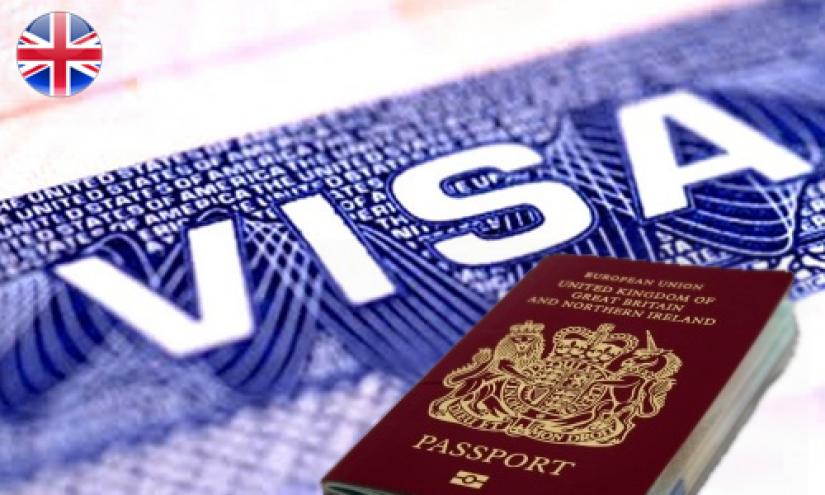 Boris Johnson has unveiled plans to attract greater numbers of scientists and experts to the UK from around the world through a new fast-track visa route, expected to be in implementation from later this year.
Boris Johnson has unveiled plans to attract greater numbers of scientists and experts to the UK from around the world through a new fast-track visa route, expected to be in implementation from later this year.
Downing Street said on Thursday that the UK Prime Minister has instructed the Home Office and Department for Business, Energy and Industrial Strategy (BEIS) to start work with the country’s scientific community to develop a fast-track visa for the “brightest and best”, which would help attract elite researchers and specialists in science, engineering and technology.
“Britain has a proud history of innovation, with home-grown inventions spanning from the humble bicycle to the lightbulb,” said Johnson.
“We were home to the world’s first national DNA database, we discovered graphene, and our cutting-edge scientists should be proud to follow in the footsteps of titans like Ada Lovelace and Nobel Laureates Francis Crick and Peter Higgs.
“But to ensure we continue to lead the way in the advancement of knowledge, we have to not only support the talent that we already have here, but also ensure our immigration system attracts the very best minds from around the world,” he noted.
UK home secretary Priti Patel, who is charged with overseeing the new route, said the new plans will help boost Britain’s standing as a science and innovation hub.
She said: “We want Britain to be the most prosperous economy in Europe with an immigration system that attracts the brightest and best global talent.
“Our new fast-track visa route will be a key part of this – encouraging the world’s top scientists and researchers to our shores. These gifted minds will bolster the UK’s standing as a hub for science and innovation as we look to introduce a points-based immigration system centred on what people will contribute to our great country.”
Some of the options to be explored will include abolishing the cap on numbers under the Tier 1 Exceptional Talent Visas, ensuring dependents have full access to the local labour market and jobs, as well as an accelerated path to settlement.
Addressing some of the Brexit related concerns of the scientific community, the government said that in addition to immigration changes, it would also provide additional funding for scientists and researchers who have sought EU funding before Britain leaves the 28-nation economic bloc.
As the Oct 31 Brexit deadline nears, Boris Johnson has sought to ease no-deal worries and in relation to science Downing Street flagged an automatic review process by UK Research and Innovation (UKRI) of any EU-linked projects caught up in the process of exiting the union.
“I want the UK to continue to be a global science superpower, and when we leave the EU we will support science and research and ensure that, far from losing out, the scientific community has a huge opportunity to develop and export our innovation around the world,” said Johnson, who took charge as PM with a pledge to exit the EU by October 31, "no if or buts".
UK Business Secretary Andrea Leadsom said: "The UK has a well-earned reputation for world-class research and innovation. From the invention of the World Wide Web to graphene, our scientists have helped to transform the world for the better.
"We are at the forefront of international collaborations tackling some of humanity’s greatest challenges, from climate change to critical health and societal issues. And as we prepare to leave the EU on 31 October, we will make sure we continue to attract the best talent, reflecting our commitment to making the UK a science powerhouse while creating jobs and growth across the whole country."
 Others
Others
41457 hour(s) 56 minute(s) ago ;
Morning 04:50 ; Thursday ; Jul 10, 2025
UK unveils new fast-track visa for scientists
Send
Aditi Khanna, London
Published : 20:29, Aug 09, 2019 | Updated : 20:31, Aug 09, 2019
Published : 20:29, Aug 09, 2019 | Updated : 20:31, Aug 09, 2019
0 ...0 ...
/st/
Topics: Top Stories
- KOICA donates medical supplies to BSMMU
- 5 more flights to take back British nationals to London
- Covid19: Rajarbagh, Mohammadpur worst affected
- Momen joins UN solidarity song over COVID-19 combat
- Covid-19: OIC to hold special meeting
- WFP begins food distribution in Cox’s Bazar
- WFP begins food distribution in Cox’s Bazar
- 290 return home to Australia
- Third charter flight for US citizens to return home
- Dhaka proposes to postpone D8 Summit
Unauthorized use of news, image, information, etc published by Bangla Tribune is punishable by copyright law. Appropriate legal steps will be taken by the management against any person or body that infringes those laws.
Bangla Tribune is one of the most revered online newspapers in Bangladesh, due to its reputation of neutral coverage and incisive analysis.
F R Tower, 8/C Panthapath, Shukrabad, Dhaka-1207 | Phone: 58151324; 58151326, Fax: 58151329 | Mob: 01730794527, 01730794528


